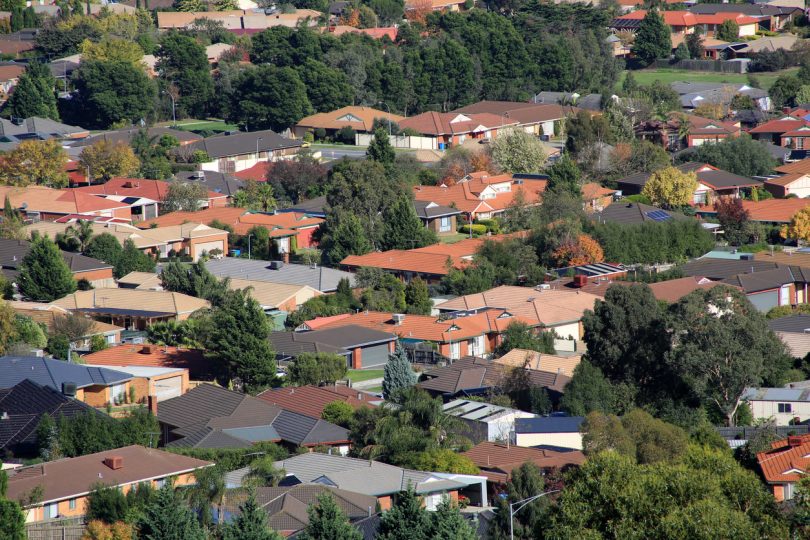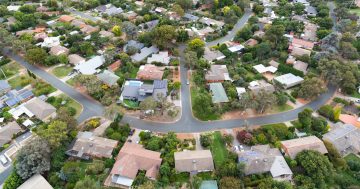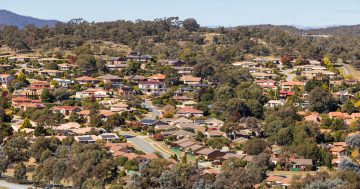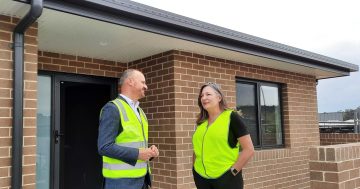
Rising house prices will worsen Canberra’s housing affordability crisis, ACT Greens candidate Rebecca Vassarotti says. Photo: File.
This week there were predictions that ACT’s house prices will continue to rise, with some commentators suggesting growth could be as high as 10 per cent.
While this is sold to us as good news, it’s not. It means that Canberra’s housing affordability crisis is likely to get even worse.
With rising house prices and rents, people with full-time jobs are struggling to make mortgage or rent payments. If you are a single parent, a young person, someone who is underemployed or unemployed, or a retiree, it is almost impossible. Without significant action, more people will be unable to afford a place to call home, pushing them right to the brink of homelessness.
The experts agree that you will be in financial stress if more than 30 per cent of your income is covering your accommodation costs. If this much of your income is required to keep a roof over your head, there’s little left to cover other essentials. It means having to make choices about which other bill payment may need to be delayed. It means cutting back on meals or not going to the doctor when you are sick. It means constant worry that you may lose your home.
Everyone should have a safe and affordable place to live. Without this, people struggle to work or stay connected with friends and families. They are more likely to be affected by physical and mental health issues, and more vulnerable to violence and trauma.
While this is a community that agrees that safe, secure and affordable housing is a right, increasingly in Canberra it is becoming a luxury. Escalating house prices are feeding the problem.
As our population grows, it is also exacerbating a reduction in the proportion of social housing. High average incomes create a squeeze on those at the lower end of the market who are locked out of opportunities in the private rental market.
There are new challenges emerging too. This summer we learned some of the realities of living through a climate emergency, with extended periods of heat and the lingering toxic smoke from bushfires. It means we are now starting to realise that a safe home also means a home that is climate change ready. We need to act to ensure the right to housing refers to a home that is not a hot box in summer, has adequate heating in winter and allows you to breath fresh air. Once again, it is those at the lowest end of the market who are most at risk.
We need to ensure an appropriate standard and quality of all our housing stock, including homes used for private rental. This will need support. Climate-adaptive housing may need to include modifications we haven’t thought of before. We will need to provide support for people to transition to more energy-efficient appliances and energy sources.
And while there have been some initial efforts to look at the issue of renters’ rights, this is still an area that needs more work. There are ways that we can provide more security of tenure and one option used in other international cities is longer-term leases.
We also need to ensure that those who are at the lowest end of the market are able to access public and social housing when they need it. Despite government being the landlord of last resort, there is a need to ensure this type of support is able to be accessed at times of crisis, not months later. This will only happen with a significant investment in new public housing stock. While a significant cost, there is a need to recognise the savings to other parts of our service system – particularly in the health and criminal justice systems that bear the brunt of the economic costs of homelessness.
There is some recognition that there are problems and some tinkering at the edges, but it’s clear that old approaches won’t work. More than a year after the release of the much anticipated ACT Housing Strategy, affordability issues continue to persist. I think we need a radical rethink of how we respond to our housing affordability issue.
Rebecca Vassarotti is a candidate for the ACT Greens in the upcoming Territory election. She is on a number of volunteer boards of community housing and specialist homelessness services.
What do you think we should do to make housing more affordable in Canberra?





















